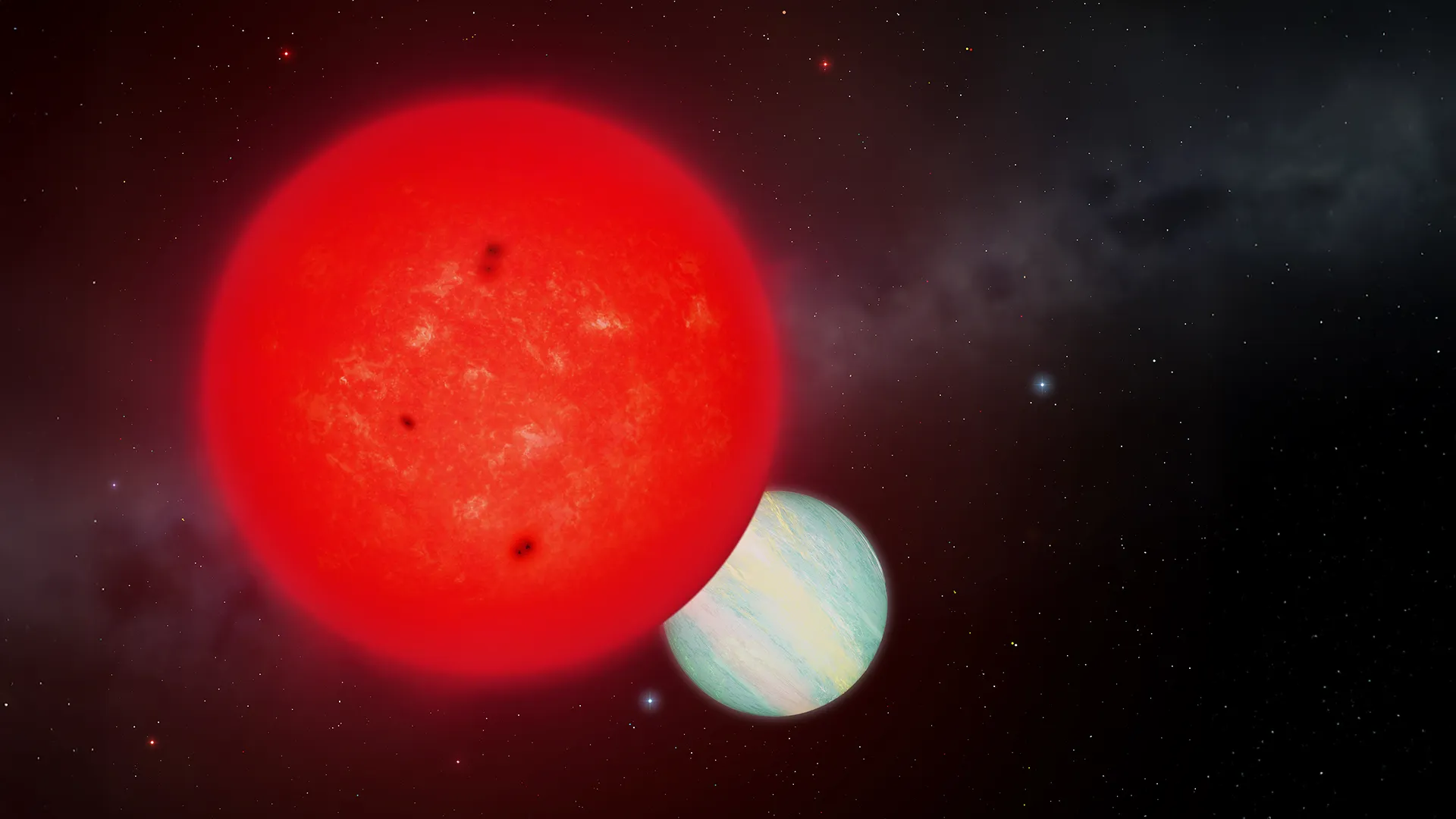Now Reading: Astronomers Discover Giant Planet Defying Scientific Expectations
-
01
Astronomers Discover Giant Planet Defying Scientific Expectations
Astronomers Discover Giant Planet Defying Scientific Expectations

Speedy Summary
- Discovery: Astronomers found a giant planet, TOI-6894b, orbiting a low-mass red dwarf star (TOI-6894) through TESS data and ESO’s VLT telescope observations.
- Planet and Star Details: TOI-6894b has a radius slightly larger than Saturn but only 50% of its mass. Its host star, TOI-6894, is the smallest known to host a transiting gas giant.
- Meaning: Challenges the core accretion theory since such stars were not expected to form or host gas giants due to limitations in protoplanetary material around low-mass stars.
- Potential Formation Theories:
– Intermediate core-accretion process without runaway gas accumulation.- gravitational instability within the protostellar disc leading to fragmentation and direct formation of planets.
Neither model fully explains TOI-6894b’s existence with current data.
- Atmospheric Insights:
– TOI-6894b is unusually cold (~420 Kelvin), hinting at methane-dominated chemistry possibly containing ammonia-rare features among exoplanets.
– Scheduled atmospheric analysis via JWST will help clarify its formation origins and chemical profile.
Indian Opinion Analysis
The discovery of TOI-6894b raises profound questions about our understanding of planetary formation mechanisms across diverse stellar systems. For India-which has ambitions in space research including an active role in exoplanet studies-this progress emphasizes the importance of refining theoretical models for planetary science while increasing capabilities in space-based observation platforms like James Webb Space Telescope.
The findings also serve as an example for researchers globally, including Indian astrophysical institutions like IIA or IUCAA, on diversifying focus beyond Earth-like exoplanets towards unique systems challenging traditional theories.Further exploration into such enigmatic discoveries builds connections between applied science and fundamental inquiries into cosmic origins-a field where India could contribute intellectual heft.
While astronomy rarely presents immediate practical relevance for nations individually, collaborative discoveries impact global understanding that could eventually shape humanity’s perspective on possibilities extending well beyond Earthbound horizons.



























